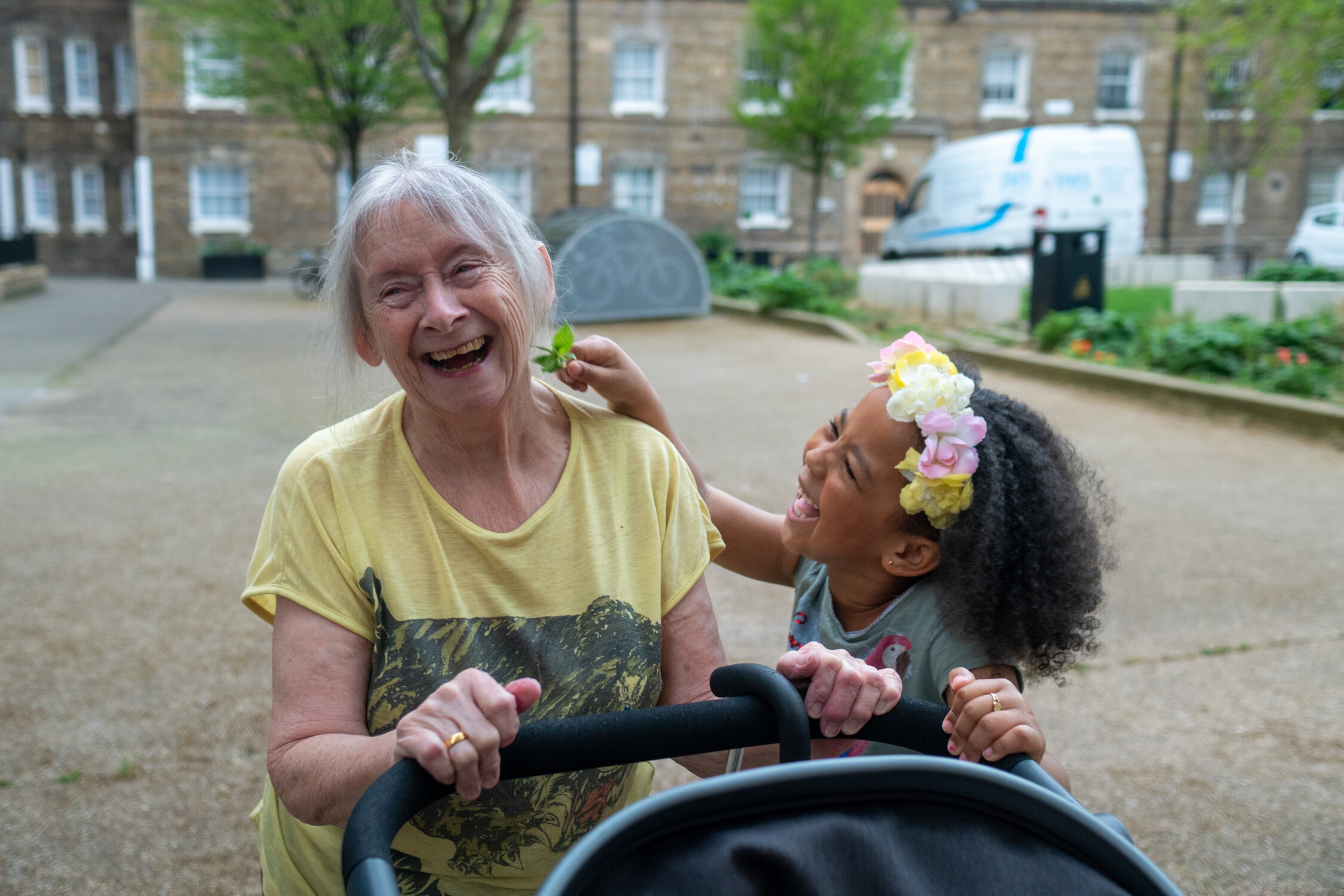“Why doesn’t granny know me anymore?” This is the sort of question that a young child might ask when a grandparent is affected by dementia. Professor June Andrews explains how you can help young people in your family understand the condition.
A relationship that was very warm and friendly may change as the person with dementia acts differently and isn’t as kind as they used to be. Even a teenager may be confused and embarrassed about the behaviour of a person with dementia in the family.“
I remember as a school child having a girl in my class who suddenly wouldn’t let us come to play at her house when her grandmother came to live with them. Because my granny was good fun, I couldn’t understand why she didn’t want us to meet hers. Then she said, “She’ll probably show you her knickers.”
In some cases, children take on caring roles for a person with dementia. Of course, all children are expected to help around the home and learning how to do chores is very important for their own development. But sometimes when there is a person affected by dementia the amount of caring that the child or young person has to provide is significant.
When it starts to make a difference to their studies or their leisure time with friends then they have really become “young carers” and they deserve particular help and support. The teenager who is helping may become very good at hiding their own needs and emotions, because they don’t want to add to the family burden. You can read more about how to support young carers here.
I remember as a school child having a girl in my class who suddenly wouldn’t let us come to play at her house when her grandmother came to live with them. Because my granny was good fun, I couldn’t understand why she didn’t want us to meet hers. Then she said, “She’ll probably show you her knickers.”
I was shocked and just thought she was rude and disrespectful. I avoided her from then on. It was years later before I realised what she must’ve been going through at home. Now I realise that what she was telling me was literally true and she didn’t have the vocabulary to tell me why she couldn’t bear to have friends around anymore because of shame and stigma.
It’s not only embarrassment and confusion or even sadness that affects the young person. They may begin to worry about how dementia comes about and whether or not it’s going to happen to them or their parents. It might be hard to talk to someone in the family about it, and many school or college friends might not understand, so a young carers group is very important. They may help the young person negotiate extra help or support at school or college.
If you are looking for a way to explain dementia, the average teenager would easily be able to read and understand a book like Dementia the One Stop Guide. In that book there is a list of other resources that you could read with younger children to help them understand that they are still loved, and that everything is going to be all right.
It is sad when the caring duties of the parents seem to rob the family of time together and time for the younger family members. This is why it is important to get all the help and benefits that are available to you, so the dementia caring role does not rob you of all family life. Finding practical solutions to common problems is always helpful and hopefully you will find a lot of that on this site, along with contact details for organisations that can help.
This article originally appeared on June’s excellent website: https://juneandrews.net/blog/19/01/2024/navigating-dementia-with-children-in-the-family-explaining-dementia-to-children
You can read more of her insightful blogs here: https://juneandrews.net/blog And follow her on Twitter @profjuneandrews
